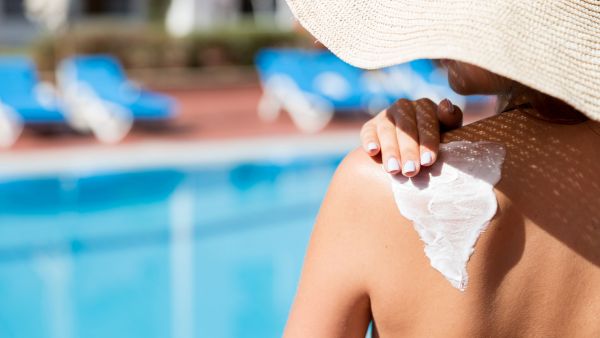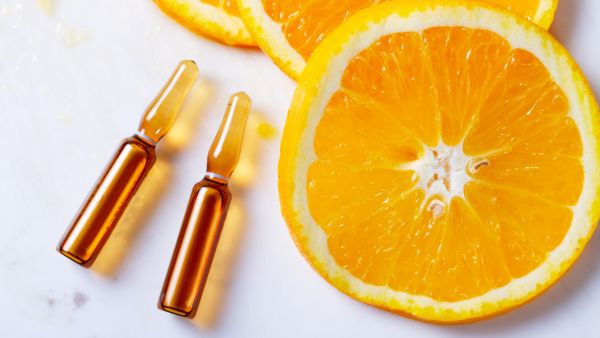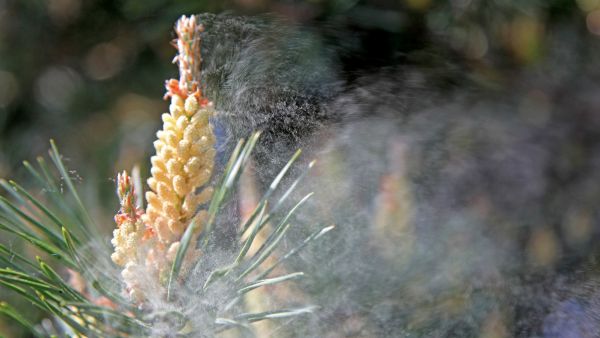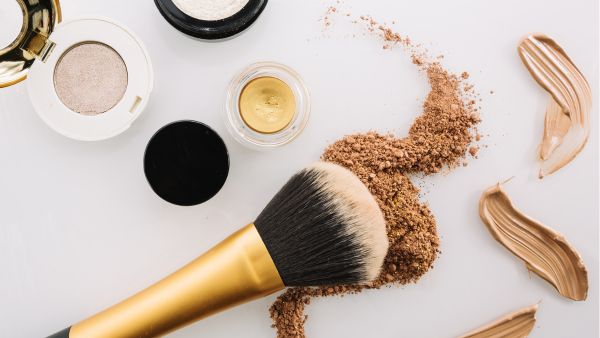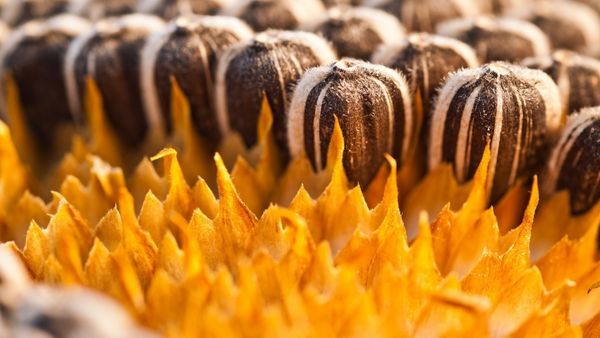5 Ways UV Rays Damage Your Skin: What You Need to Know to Stay Protected
Most of us are well aware of the risks associated with sun exposure and the importance of sun protection as a means of skin cancer prevention.
But do you know exactly how UV rays damage your skin?
In this three-part series dedicated to Skin Cancer Awareness Month, we'll first explore the impact of UV rays on skin DNA and structure. In subsequent posts, we’ll highlight some powerful skincare ingredients that offer fortifying and restorative benefits to sun-damaged skin as well as cover other ways in which you can protect your skin from ultraviolet damage.
The following are five ways in which ultraviolet (UV) rays from the sun, primarily UVA and UVB rays, cause damage to the skin:
1. DNA damage and skin cancer risk
UVB rays can directly damage the DNA in skin cells. This damage to our skin’s genetic code can lead to mutations that can result in skin cancer such as basal cell carcinoma, squamous cell carcinoma, and melanoma. This is in part due to the fact that the DNA damage continues hours after our exposure to the sun has ended.
- Apply a broad-spectrum sunscreen with at least SPF 30
- Wear protective clothing, sunglasses, and wide-brimmed hats
- Seek shade during peak sun hours (10 am-4 pm)
2. Sunburn and inflammation
UVB rays are the main culprits of sunburn, an acute response to excessive UV exposure characterized by redness, inflammation, and sometimes blistering. The safest way to prevent sunburn is to cover up, use SPF 50+, and avoid sun exposure when ultraviolet rays are at their strongest, between 10 am-4 pm.
- Apply and reapply sunscreen every 2 hours
- Wear sun-protective clothing
- Avoid peak sun hours (10 am-4 pm)
3. Pigmentation changes
UVA and UVB rays stimulate melanocytes (pigment-producing cells) in the skin, leading to the development of freckles, age spots, and uneven skin tone. An additional unfortunate byproduct of melanin production is DNA derivatives called cyclobutane pyrimidine dimers (CPDs). CPDs are associated with an increased risk of melanoma. UVA rays penetrate the deepest into the skin and can pass through panes of glass (such as car windows) and cloud cover.
- Use sunscreen daily, even on cloudy days
- Incorporate brightening skincare products to fade pigmentation
- Consult a dermatologist for personalized treatment options
4. Collagen and elastin degradation
UVA rays can damage collagen and elastin fibers in the skin. This damage results in premature skin aging characterized by wrinkles, and loss of skin structure which leads to sagging skin and overall loss of elasticity.
- Apply sunscreen to protect against UVA and UVB rays
- Include skincare products with antioxidants and collagen-boosting ingredients like our Alpine Phytonutrient Serum.
- Consider professional treatments to stimulate collagen production
5. Blood vessel dilation
UVA rays can cause dilation of blood vessels in the skin, contributing to erythema (redness) and inflammation.
- Use a physical sunscreen containing zinc oxide or titanium dioxide
- Choose skincare products with calming ingredients, such as aloe vera like our Aspen Dew Illuminating Essence.
- Consult a dermatologist for treatments targeting redness and inflammation
While the most foolproof way of protecting your skin from ultraviolet rays is to stay out of the sun, this is not always possible or desirable.
You can however protect your skin by making a habit of wearing non-toxic mineral sunscreen daily. And you can fortify your skin against the sun by using skin care products that fight oxidative stress and free radical damage.
With powerful free radical scavenging ingredients like Edelweiss and Bearberry extract, The Aspen Dew Illuminating Essence supports skin health both before and after sun exposure.
UV Rays FAQs
How do UV rays damage the skin?
A: UV rays can damage the skin in various ways, including causing DNA damage, sunburn, pigmentation changes, collagen and elastin degradation, and blood vessel dilation.
What's the difference between UVA and UVB rays?
A: UVA rays penetrate deep into the skin and contribute to premature aging, while UVB rays are responsible for sunburn and DNA damage. Both types can contribute to skin cancer.
How can I protect my skin from UV damage?
A: Apply a broad-spectrum sunscreen with at least SPF 30, wear sun-protective clothing, sunglasses, and wide-brimmed hats, and seek shade during peak sun hours (10 am-4 pm).
Sources cited:
- https://pubmed.ncbi.nlm.nih.gov/10365447/
- https://www.who.int/uv/faq/uvhealtfac/en/index1.html
- https://www.researchgate.net/publication/6836296_Mouret_S_Baudouin_C_Charveron_M_Favier_A_Cadet_J_Douki_TCyclobutane_pyrimidine_dimers_are_predominant_DNA_lesions_in_whole_human_skin_exposed_to_UVA_radiation_Proc_Natl_Acad_Sci_USA_10313765-13770
- https://pubmed.ncbi.nlm.nih.gov/19675548/
- https://pubmed.ncbi.nlm.nih.gov/25653189/

